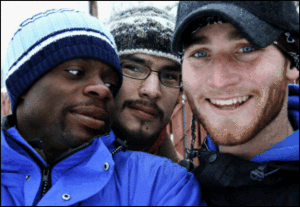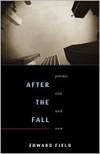Communing
Opening Words from the Editors
By Dan Vera and Bo Young
Bo: Once again we return to a subject that is really in our DNA
Dan: We return to a subject that seems connected to every other theme we’ve ever done.
Bo: From the start, this was a circle of friends who met in Bob Barzan’s living room to talk to one another
Dan: And the newsletter was Bob’s way of staying in touch and keeping that circle open to others outside that small group.
Bo: I think that’s something Toby Johnson carried on and that we have too. How poignant that as we went to press with this issue we received word of the passing of John Burnside, Harry Hay’s partner. Poignant because our own friendship and association arises out of spending time with the two of them at the Faerie sanctuary in Oregon doing the “Sex Magic” workshops and forming our own “Circle of Loving Companions.”
Dan: Maybe we need to provide a little background for our readers. Harry Hay was considered the father of the Gay Rights movement in the 1950s and later one of the founders of the Radical Faerie “development” (as he liked to call it). In the last decades of his life Harry began an annual series of weeklong workshops with his partner John Burnside.
Bo: God. Do we really need to tell people who Harry Hay is?
Dan: Surprisingly yes. I was struck at talking to a younger gay brother in his 20s who had no idea who Harvey Milk was. We were chatting about the amazing movie trailer online for the Harvey Milk film coming out in November and he looked at me and said “Who’s Harvey Milk?” I was frankly stunned for a second but then had to remind myself that we still come out of erasure and that schools still don’t teach out heroes or our history. None of them do or damn few so as to be negligible. But back to Harry and John. They had this idea of bringing small groups of Gay men together to see if it was possible for Gay men to work through a lot of our baggage and “teach each other” ways of being that were gentle and kind. A very elegant and romantic vision whose success can be seen in the work of that circle and in our friendship, and as you point out, in the nature of this magazine so many years later. John was the last one of that pair that called forth those circles and, in keeping with his training as a scientist, oversaw that experiment of heart and community.
Bo: For me, the interesting thing behind “Community” is to talk about the diversity in it. Not that we are all alike, but that we are a variety of people trying to live together, not a group of people who share every particular of our lives. I think Murray Edelman’s piece in this issue, about Circle Voting, speaks to this idea of putting ourselves in contact with people who don’t necessarily share our point of view about everything…and how we have all become more and more insulated from differing opinions, factionalized into only ever coming into contact with those with whom we agree. By the same token, this magazine has always tried to stay focused narrowly, and be a voice of, by and for Gay men. It’s that kind of paradox that always gets me…not either/or, but both/and.
Dan: I want to go back to Harry and John’s workshop. Without speaking too much about the particulars that experience for me was of being in a circle with fifteen other Gay men for the first time in my life (all strangers to me till that experience) and reaching the ability to share the most intimate experiences of oneself in a circle of absolute trust. Frankly I’m not sure I ever thought that kind of intimacy and trust was possible before that experience and certainly not among gay men. Beyond the basic internalized homophobia stuff, I realized I’d sucked in the “brokenness of gay people” to a point where I didn’t realize that we had the potential to heal each other and to hear each other to build a community. It was a convention shattering experience for me.
Bo: Interestingly, one of the central ideas of those workshops was withdrawing and sequestering ourselves from the “larger community” for a period so we could come back to the larger community with more clearly drawn boundaries of self, a stronger core definition. I think the real idea, and Murray talks about this in his interview, is that we are all part of many different communities…some overlapping, some that hardly come in contact and one of the central ideas of this publication was to provide a place where those differences could come together in conversation.
Dan: I especially enjoyed and appreciated Bryn Marlow’s essay in this issue about building community. The nuts and bolts experience of someone coming out and trying to figure out what it’s all about. I think most Gay men are left alone to try to figure it out for themselves with very few resources. Bryn’s piece offers that narrative. How do you navigate yourself in this strange new world and how for Darwin’s sake, HOW do you build community?
Bo: I love those first person accounts…it’s what we have always looked for here…the personal statement. And Malcolm Boyd’s “Community of Two” another one of our central ideas is that this is not meant to be the writings of experts and scholars here (though it seems we’ve gotten a reputation as “scholarly” but the shared opinions…and that out of that sharing of individual stories, a greater truth comes out. Not opinions but stories. The larger story of Community with a capital “C” out of many smaller communities. Just as we’ve always hoped that each issue might be used to stimulate those smaller groups like the one Bob started in his living room.
Dan: I think the importance of valuable symbols or metaphors for living is highly undervalued in our culture. So Marlow and Boyd’s pieces are so key to making sense of one’s life because part of that whole “making sense of oneself” has to do with finding the symbols that work in describing one’s place in the journey. So we need to drop the negative fallacious stereotypes and find those that are expansive enough to help us as we navigate through life.
Bo: Could you elaborate on what you think the positive symbols and metaphors might be?
Dan: I think we can fall into over complicating the whole thing. I’d like to think that a healthy community is one that allows you the room to explore your life, to examine why you are here and why “we” are here (a key question for Harry). In that regard the search for an examined life is a universal but Gay men start with having to get rid of a lot of excess garbage and some draconian baggage they had little to do with packing. So, for us it’s about clearing through a lot of this stuff and making sure we’re approaching our lives from a symbolic point that’s authentic and that can serve us for a long time. I think White Crane, at our brightest points, serves to be an instrument to connect people with some authentic wisdom, that is, the hard fought, “discerned” discovery about our lives. There are so few places for this in the world. And for those regarding gay life and experience precious few.
Bo: Not only clearing out the garbage, but also reconnecting with a history that has been hidden, too…I think that is actually, for me at least it was, a critical part of coming to terms with who I am, literally, “coming to terms,” finding old language, like Whitman and Carpenter, and Harry…but also one another. Certainly there are very few that are not about trying to assimilate, and become more like heterosexual people, fitting in, and spending and buying like a good little market niche I think as soon as we “buy in” to the idea that all we have is our economic power, we’re giving up a huge part of who we are as a community.
Dan: One way of looking at this metaphorically is the difference between thin and deep. That is, thin and deep culture. I know we’re small potatoes compared to the large publications that are out there targeting the “gay” community. But what we offer is a transmission of culture, a sharing of wisdom from writer to reader and from reader to writer. I’m okay if we’re “small potatoes” compared to the GLOBOGAYCORP media stuff. That’s thin competition. We are Russian blue potatoes compared with the kind of instant mashed potatoes in a box being peddled by most gay publications. It might just be a “community of 2,” of you and me in two different cities putting this together, but we’re connected to so many brothers around the world who want something richer and deeper. Who hunger for something more substantive, who know that life finds its glory in its discovery, and in our case, it’s recovery. That’s the basis of our community.
This is just an excerpt from this issue of White Crane. We are a reader-supported journal and need you to subscribe to keep this conversation going. So to read more from this wonderful issue SUBSCRIBE to White Crane. Thanks!
Bo lives in Brooklyn, NY a few blocks from a museum and
Dan lives in Washington, DC a few blocks from a Shrine. Dan's proud to report he has a new book of poetry out from Beothuk Books. His website is at www.danvera.com
You can write them at editors@gaywisdom.org
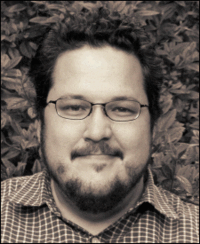
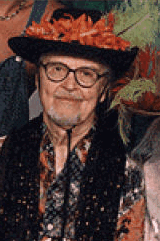
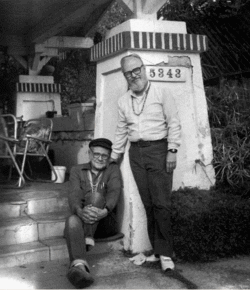



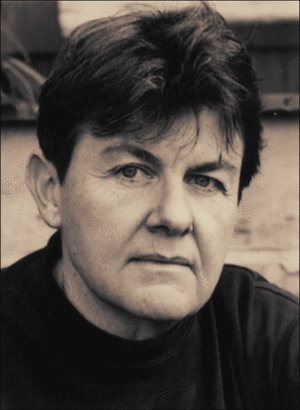
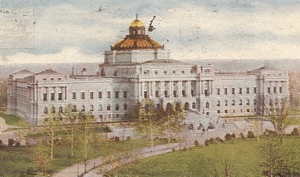 The position has been celebrated as the "catbird seat" of American poetry while others have complained about the position’s vagueness. Elizabeth Bishop hated her time as consultant while Robert Lowell described the position as "neither a librarian nor a Washington official, but something odd, one of the Government’s oversights." Indeed the role of the poet laureate has always been a bit vague and has changed over the years. Originally the position was seen as a real consultantship and the poet actually moved to DC to spend a year (or two years if their appointment was repeated) working at the Library of Congress in a pretty palatial office overlooking the Capitol building. Consultants were expected to oversee the Library’s vast holdings in poetry, to hold readings and to answer any questions about poetry. A congressman wanting to find just the right line from Cicero for his diatribe from the senate floor could call up the office and get some suggestions. Archibald MacLeish, the only poet to hold the position of Librarian of Congress, redesigned the position as a one year position to recognize an excellent poet and provide them with a year free of most constraints in which they could do research on future work. James Dickey gave the position it’s very public face and initiated the practice of inviting multiple poets to read at the library (a common practice today). Sadly poet laureates don’t move to DC anymore. Most hold academic teaching positions and only come to Washington to give their own readings (which launches the season) and also regularly travels to the capitol to introduce their selected poets. In those public readings I have had the pleasure of hearing some wonderful poets — Galway Kinnell, and Charles Simic and Donald Hall (the last two poet laureates). In Washington, people wait to hear who has been selected as laureate and then wait to hear who the laureate will invite to come read. These free readings by these great poets are among the special delights of living in the nation’s capitol.
The position has been celebrated as the "catbird seat" of American poetry while others have complained about the position’s vagueness. Elizabeth Bishop hated her time as consultant while Robert Lowell described the position as "neither a librarian nor a Washington official, but something odd, one of the Government’s oversights." Indeed the role of the poet laureate has always been a bit vague and has changed over the years. Originally the position was seen as a real consultantship and the poet actually moved to DC to spend a year (or two years if their appointment was repeated) working at the Library of Congress in a pretty palatial office overlooking the Capitol building. Consultants were expected to oversee the Library’s vast holdings in poetry, to hold readings and to answer any questions about poetry. A congressman wanting to find just the right line from Cicero for his diatribe from the senate floor could call up the office and get some suggestions. Archibald MacLeish, the only poet to hold the position of Librarian of Congress, redesigned the position as a one year position to recognize an excellent poet and provide them with a year free of most constraints in which they could do research on future work. James Dickey gave the position it’s very public face and initiated the practice of inviting multiple poets to read at the library (a common practice today). Sadly poet laureates don’t move to DC anymore. Most hold academic teaching positions and only come to Washington to give their own readings (which launches the season) and also regularly travels to the capitol to introduce their selected poets. In those public readings I have had the pleasure of hearing some wonderful poets — Galway Kinnell, and Charles Simic and Donald Hall (the last two poet laureates). In Washington, people wait to hear who has been selected as laureate and then wait to hear who the laureate will invite to come read. These free readings by these great poets are among the special delights of living in the nation’s capitol.